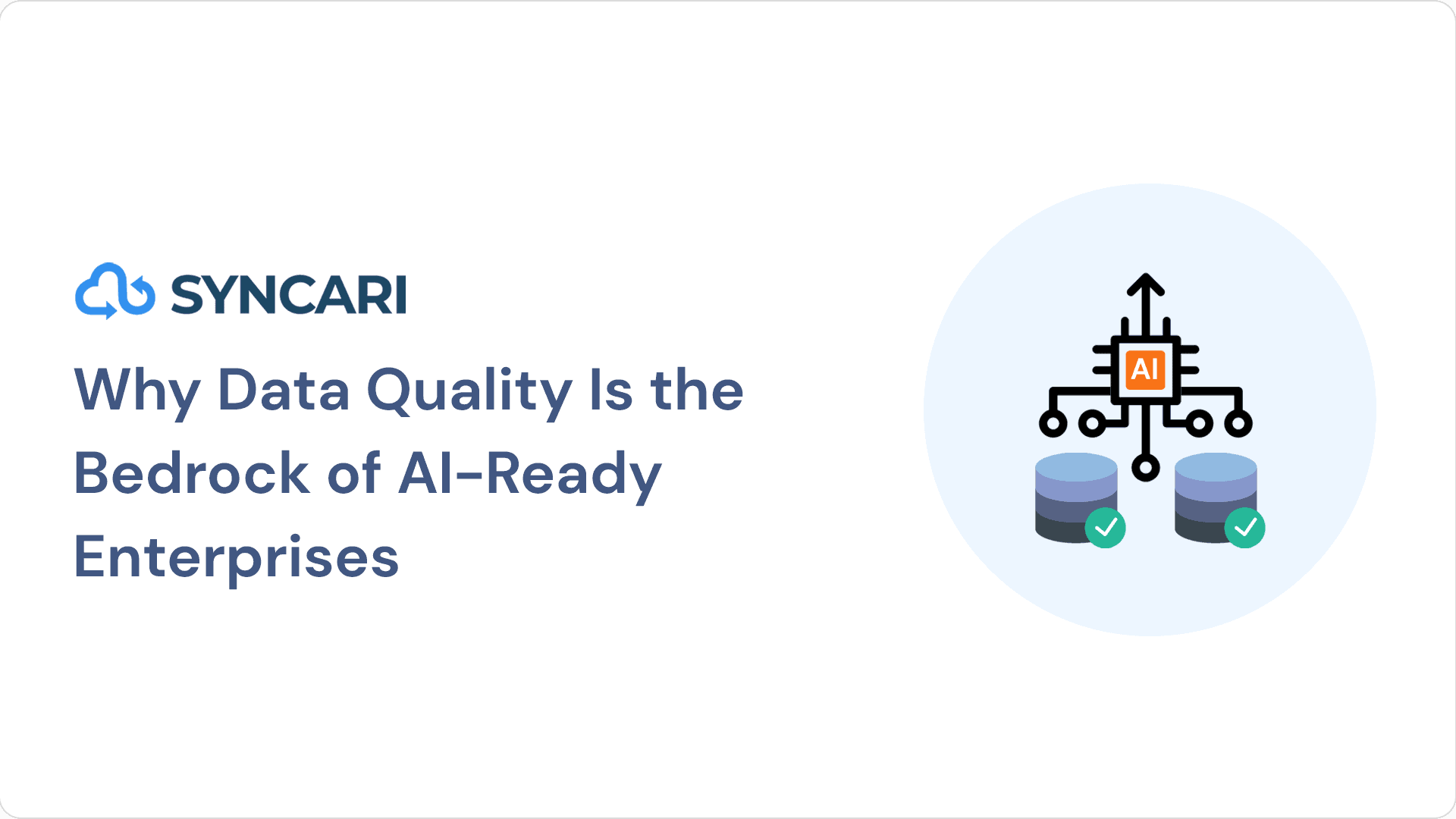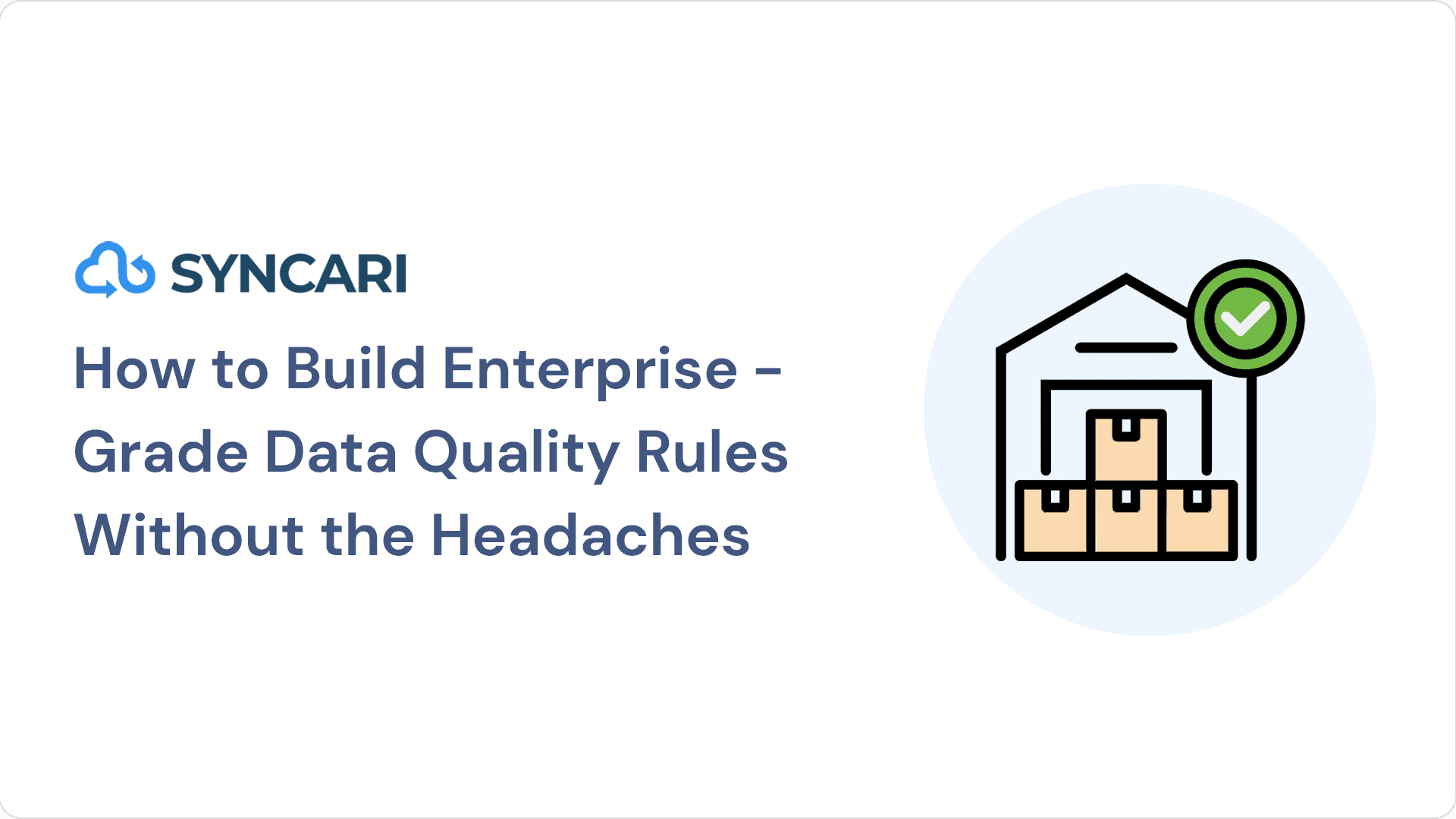The Shift from Traditional to Agentic MDM
Master Data Management (MDM) is a critical pillar of data governance, data integrity, and enterprise decision-making. For years, organizations have relied on traditional MDM solutions to establish a single source of truth, enabling businesses to manage customer data, financial records, and operational insights efficiently.
However, as businesses scale and data complexity grows, traditional MDM solutions are increasingly inadequate—burdened by rigid governance models, fragmented integrations, and slow implementation cycles.
Enter Agentic MDM, a modern, autonomous approach to data management that leverages AI-driven automation, real-time data synchronization, and distributed decision-making to ensure trusted, actionable data across the enterprise.
Unlike legacy MDM solutions that rely on centralized control and manual governance, Agentic MDM enables decentralized, self-governing data management, ensuring that data is continuously aligned, cleaned, and enriched across the entire ecosystem.
In this blog, we’ll explore how Agentic MDM is reshaping enterprise data management, providing faster insights, real-time decision-making, and enhanced automation for modern businesses.
What is Agentic MDM? A New Era for Data Management
Agentic MDM represents a paradigm shift from traditional, rule-based MDM architectures to adaptive, AI-driven data ecosystems. Instead of relying on a single, monolithic platform, Agentic MDM distributes intelligence across multiple systems, allowing them to autonomously:
- Clean and standardize data in real-time
- Identify and resolve duplicates without human intervention
- Enforce business rules dynamically across distributed databases
- Synchronize changes instantly across multiple enterprise platforms
This self-governing, automation-first approach ensures that organizations are always working with high-quality, trusted data, leading to improved analytics, better AI models, and more accurate business decisions.
Traditional MDM vs. Agentic MDM: Key Differences
| Feature | Traditional MDM | Agentic MDM |
| Governance Model | Centralized | Decentralized |
| Data Processing | Batch-based | Real-time |
| Automation | Manual intervention required | AI-driven automation |
| Integration | Siloed, static connectors | Dynamic, API-first |
| Scalability | Rigid, costly | Flexible, cloud-native |
| Decision-Making | Human approval workflows | AI-powered self-correction |
Key Benefits of Agentic MDM for Enterprise Data Leaders
With Agentic MDM, organizations can achieve faster, more accurate, and scalable data management, leading to:
- Automated Data Alignment Across Systems: AI-driven agents harmonize, clean, and unify data dynamically, ensuring consistent and enriched datasets across CRMs, ERPs, marketing platforms, and financial systems—without human intervention.
- Distributed Decision-Making & Governance: Rather than relying on a central data team to enforce policies, each system within the enterprise contributes to data integrity, ensuring faster decision-making and improved agility.
- Real-Time Data Synchronization: No more waiting for batch updates or overnight processes—Agentic MDM propagates changes instantly across all integrated platforms, ensuring teams always have access to the most accurate data.
- Enhanced Agility & Adaptability: Traditional MDM solutions require lengthy customization cycles. With Agentic MDM, businesses can modify data policies, workflows, and governance rules in real-time to adapt to market changes, compliance updates, or operational shifts.
- Improved AI & Analytics Outcomes: High-quality, well-governed data is the foundation of AI-driven insights. By ensuring data accuracy and consistency across all sources, Agentic MDM enhances predictive analytics, machine learning models, and data-driven decision-making.
How Agentic MDM Solves Traditional MDM Challenges
- Eliminating Data Silos Without Costly MDM Deployments: Many organizations struggle with fragmented data, requiring expensive, slow-moving MDM implementations that fail to scale. Agentic MDM bypasses these limitations, synchronizing disparate data sources in real-time without costly infrastructure overhauls.
- Accelerating Data-Driven Decision-Making: With real-time data alignment and AI-driven automation, business leaders can trust their data—eliminating inconsistent reports, duplicated records, and misaligned KPIs that slow down strategic decision-making.
- Empowering Business Users with Self-Service Access: Legacy MDM solutions require heavy IT involvement for data updates. With Agentic MDM, business users gain self-service access to trusted, governed data, eliminating dependency on IT teams and enhancing data democratization.
- Enhancing AI and Analytics with High-Quality Data: Without high-quality, unified data, AI models and analytics initiatives fail to deliver meaningful insights. Agentic MDM ensures structured, complete, and reliable data, improving predictive analytics, customer insights, and operational forecasting.
Why Agentic MDM is the Future of Enterprise Data Management
The rapid rise of cloud computing, AI-driven automation, and real-time data ecosystems has exposed the limitations of traditional MDM solutions.
Agentic MDM offers:
- A more flexible, scalable alternative to rigid, centralized MDM platforms
- A real-time, AI-powered approach to data governance and synchronization
- A no-code, automation-first framework that removes IT bottlenecks
- A future-proof solution that adapts to evolving business needs and compliance regulations
In an era where data is the new currency, organizations that adopt Agentic MDM will outpace competitors, accelerate innovation, and achieve superior data-driven decision-making.
Takeaway: The Future of MDM is Agentic
As businesses demand more agility, automation, and real-time decision-making, Agentic MDM is redefining the role of Master Data Management.
Organizations that embrace Agentic MDM can:
- Eliminate data silos and enhance data integrity
- Accelerate enterprise-wide AI and analytics initiatives
- Reduce reliance on manual data reconciliation
- Enable business users with self-service, trusted data
💡 Is your organization ready for the next evolution of data management? Talk to us.



